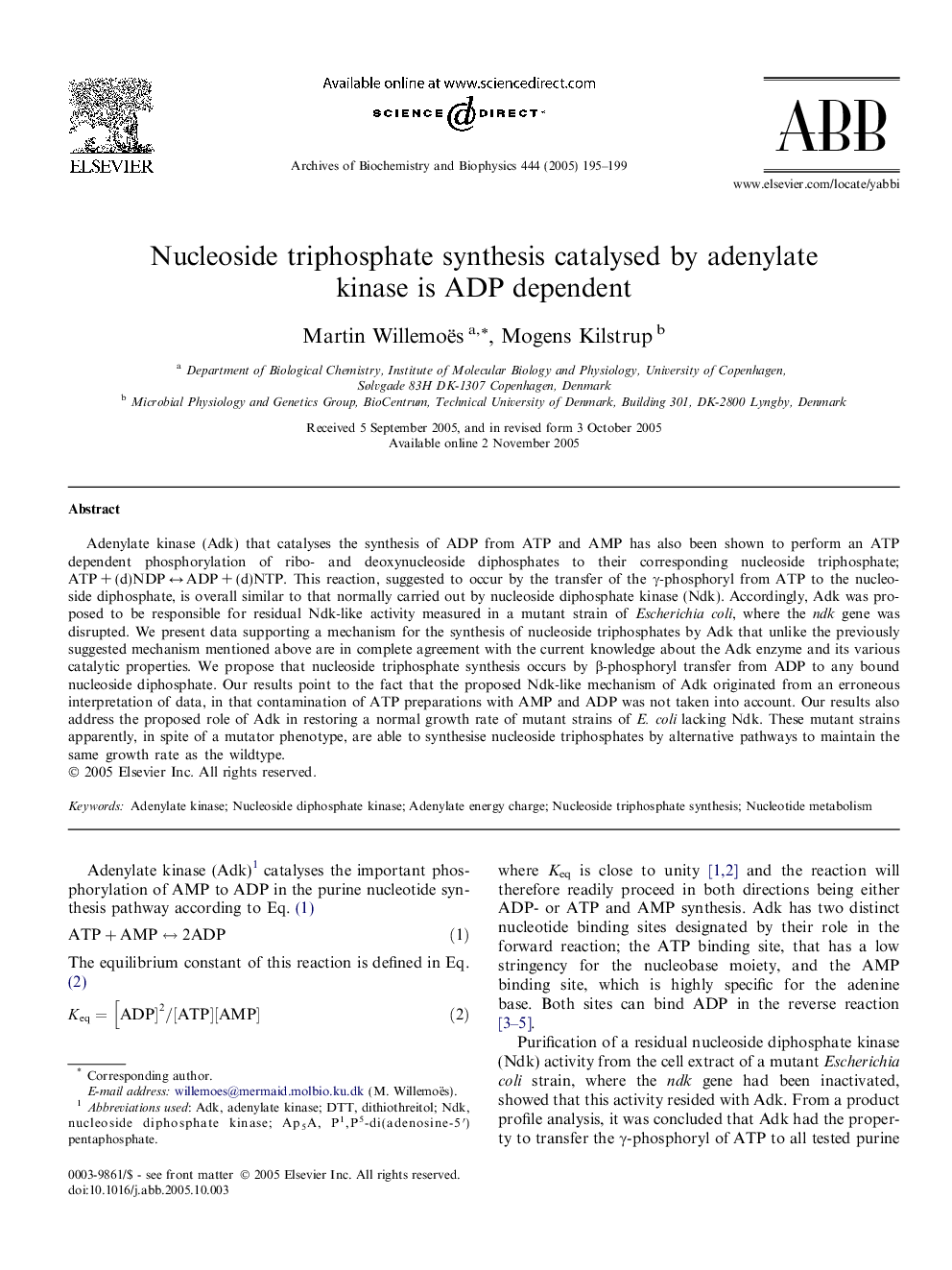| Article ID | Journal | Published Year | Pages | File Type |
|---|---|---|---|---|
| 9882070 | Archives of Biochemistry and Biophysics | 2005 | 5 Pages |
Abstract
Adenylate kinase (Adk) that catalyses the synthesis of ADP from ATP and AMP has also been shown to perform an ATP dependent phosphorylation of ribo- and deoxynucleoside diphosphates to their corresponding nucleoside triphosphate; ATP + (d)NDP â ADP + (d)NTP. This reaction, suggested to occur by the transfer of the γ-phosphoryl from ATP to the nucleoside diphosphate, is overall similar to that normally carried out by nucleoside diphosphate kinase (Ndk). Accordingly, Adk was proposed to be responsible for residual Ndk-like activity measured in a mutant strain of Escherichia coli, where the ndk gene was disrupted. We present data supporting a mechanism for the synthesis of nucleoside triphosphates by Adk that unlike the previously suggested mechanism mentioned above are in complete agreement with the current knowledge about the Adk enzyme and its various catalytic properties. We propose that nucleoside triphosphate synthesis occurs by β-phosphoryl transfer from ADP to any bound nucleoside diphosphate. Our results point to the fact that the proposed Ndk-like mechanism of Adk originated from an erroneous interpretation of data, in that contamination of ATP preparations with AMP and ADP was not taken into account. Our results also address the proposed role of Adk in restoring a normal growth rate of mutant strains of E. coli lacking Ndk. These mutant strains apparently, in spite of a mutator phenotype, are able to synthesise nucleoside triphosphates by alternative pathways to maintain the same growth rate as the wildtype.
Related Topics
Life Sciences
Biochemistry, Genetics and Molecular Biology
Biochemistry
Authors
Martin Willemoës, Mogens Kilstrup,
